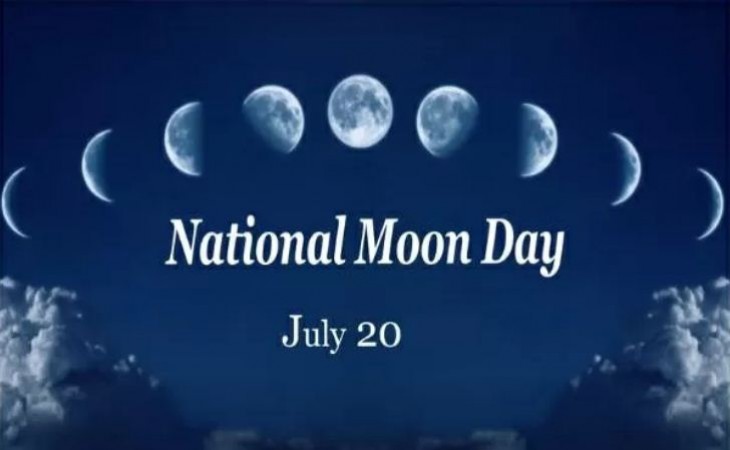
National Moon Day, observed on July 20th each year, commemorates one of the most monumental achievements in human history—the Apollo 11 moon landing. On this day in 1969, NASA's Apollo 11 mission successfully touched down on the lunar surface, allowing Neil Armstrong and Buzz Aldrin to become the first humans to set foot on another celestial body. National Moon Day serves as a reminder of humanity's indomitable spirit of exploration and the remarkable advancements that can be achieved through collaboration, innovation, and the pursuit of knowledge.
The Historical Significance of the Moon Landing: The Apollo 11 moon landing marked a pivotal moment in the history of space exploration. As Neil Armstrong famously declared, "That's one small step for man, one giant leap for mankind." This incredible achievement not only demonstrated the remarkable capabilities of human ingenuity and scientific progress but also united people around the world in awe and admiration for the audacious endeavor. The successful mission paved the way for subsequent lunar missions and solidified the United States' position as a frontrunner in space exploration.
The Legacy of the Moon Landing: The significance of the moon landing extends far beyond the immediate triumph of the Apollo 11 mission. It ignited a spark of inspiration for generations to come, fostering an enduring fascination with space and driving advancements in various scientific fields. The moon landing opened new possibilities for space exploration, leading to subsequent missions like Apollo 12, 14, 15, 16, and 17. Each mission brought back invaluable scientific data, expanded our understanding of the Moon's geology, and contributed to the overall knowledge of our universe.
The Impact on Technology and Innovation: The race to the Moon spurred technological advancements that have had a profound impact on our everyday lives. The research and development undertaken during the Apollo program resulted in numerous breakthroughs in fields such as telecommunications, computer science, materials science, and more. Technologies initially developed for space exploration, such as miniaturized electronics, satellite communication, and advanced materials, have found applications in diverse areas, including medical devices, transportation, and consumer electronics. The Apollo program's legacy continues to inspire innovation and serves as a testament to the power of pushing the boundaries of human knowledge.
Inspiring Future Generations: National Moon Day encourages us to reflect on the past and inspire future generations to pursue scientific exploration and discovery. It reminds us of the collective determination and collaborative spirit required to achieve great feats. The moon landing serves as a reminder that no dream is too ambitious and that the boundaries of human potential are meant to be pushed. By celebrating National Moon Day, we honor the astronauts, engineers, and scientists who made the moon landing possible and inspire new generations to reach for the stars.
National Moon Day provides an opportunity to remember and celebrate the remarkable achievement of the Apollo 11 mission. It symbolizes humanity's insatiable curiosity, resilience, and the spirit of exploration. The moon landing not only expanded our understanding of the universe but also had a lasting impact on technology, innovation, and society as a whole. As we commemorate this historic event, let us reflect on the extraordinary achievement of landing on the Moon and use it as a catalyst to continue pushing the boundaries of human knowledge and endeavor.